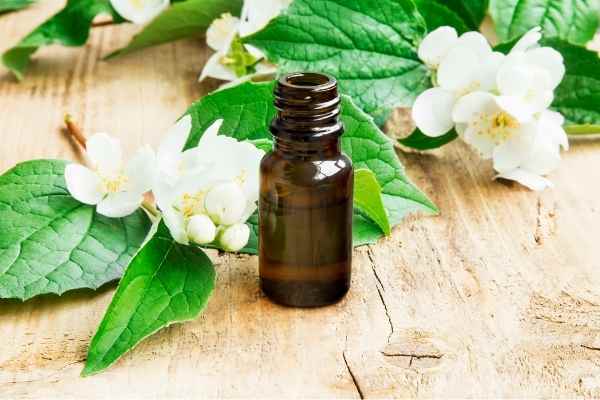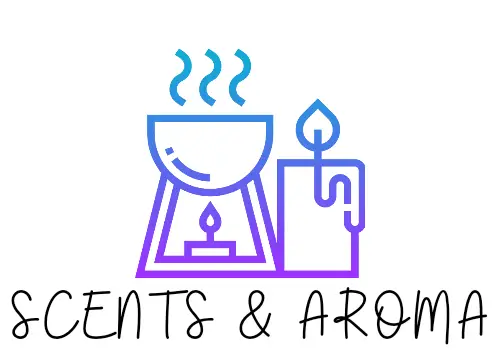Almost all essential oils are safe for humans. Why? because we know which one works and which does not. When we use essential oil and feel comfortable, we know.
Conversely, when we don’t feel good, we can tell and stop the use. However, dogs don’t have a voice. Although no dog owner will deliberately hurt their dog, there is so much bad information about essential oil out there and it could hurt your dog.
Not all essential oils are safe for dogs. But will jasmine essential oil hurt your dog?

Is jasmine essential oil safe for dogs?
Yes, jasmine is safe for dogs. Jasmine essential oil has a calming effect on dogs. As a result, it is ideal for treating anxiety, anger, and alleviating seizures. Dog owners can use jasmine for aromatherapy or apply it directly on the coat of their dogs. However, you must use very little jasmine oil and dilute it with a carrier oil. Also, you must not administer jasmine oil orally except by a vet.
Jasmine plants or true jasmine are not toxic for dogs. However, there are lots of plants that are often referred to as jasmine but are not. We call these types jessamine. But how can you know which one is best for your dog? Read on for more information.
How is jasmine essential oil made?
Jasmine flowers are delicate. As a result, they cannot withstand the rigors of the cold press or the heat of steam distillation. Because of this, you cannot extract oil from jasmine flowers with either method without destroying the flowers.
However, you can use a solvent to draw out oil from the petals.
- Spread and secure a cheesecloth over a container. Then, melt lard into a saucepan and pour the molten fat through the cheesecloth to strain it. You can skip this step if you are using pure lard.
- Let the fat set until it is solid and the layer is about ½ inch thick. However, before it solidifies, spread the fat with a paring knife to provide more surface area for the oil to seep into.
- Remove the leaves, stems, and other elements from the jasmine while the lard is cooling. Leave only the petals. Wash your petals thoroughly and dry them on a kitchen towel to remove any moisture.
- Add jasmine on top of the hardened lard. Then, use a smaller dish inside the larger one to press it and to push the petals down into the lard. Tape the two dishes to make them air-tight.
- Place both dishes in a cool, dark place for up to 48 hours. Then, remove the tape and petals.
- Replace the flowers with fresh ones and release the container. Then, repeat the step above until the fat is saturated with jasmine oil.
- Remove the flowers and cut the fat into smaller pieces. Press the fat into a bottle and fill it with rubbing alcohol. Then, seal the bottle and leave it in a dark place for about 3 months. After this, strain the alcohol into clean bottles.
- Alternatively, you can use carrier oils or alcohol instead of lard.
Is jasmine essential oil toxic to dogs?
Jasmine essential oil is non-toxic to dogs. However, plants that are confused with jasmine can hurt your furry friend. There are several species within the Jasmine genus. This includes:
- Orange jasmine
- Allspice
- Madagascar jasmine
- Night and day jasmine
- Star jasmine
- Kate jasmine
- Jasmine tobacco
- Confederate jasmine.
The jasmine plant is identifiable by its bright and beautiful flowers. Although Jasmine plants and oil are not toxic to dogs, Jessamine is toxic to dogs.
Dog owners, gardeners, and ordinary people often confuse jasmine and jessamine. Also called false jasmine, jessamine is nicknamed trumpet for its yellow flowers shaped like a trumpet. Although cute, the flower is toxic to humans and mammals – including dogs.
Jessamine poisoning in dogs can cause:
- Difficulty swallowing
- Breathing difficulty
- Muscle weakness
- Paralysis
- Vision loss
- Seizures
What symptoms and illnesses can jasmine essential oil cause in dogs
Oral jasmine administration can cause severe health complications like:
- Breathing difficulties
- Muscle weakness
- Hypothermia
- Decrease in respiratory rate
- Paralysis
- Vision impairment
- Vomiting or diarrhea
- Excess drooling
If you see your dog exhibiting any of the above symptoms after being around jasmine essential oil it is critical that you get it to a vet as soon as possible.
Is a small amount of jasmine essential oil safe for dogs to be around?
A small amount of jasmine administered via aromatherapy or topical application won’t hurt your dog. Since dogs have millions of olfactory cells linked to their brain, certain smells will induce some physical and mental responses. For jasmine essential oil, it will produce a calming effect.
You can also apply a small amount of jasmine to your dog’s coat so that the body can absorb the oil. However, remember that a dog’s skin is more sensitive than a human’s. As a result, you must use very little jasmine oil diluted with a carrier oil. Carrier oils you can use include apricot kernel, aloe vera, jojoba, sunflower, or coconut oil.
Although jasmine is not toxic, some dogs may be allergic to the plant and its oil. The symptoms of the allergy are similar to symptoms of other pollen-related allergies. These may include
- Watery eyes
- Itchy and irritated skin
- Running nose, sneezing, wheezing
- Scratching and excessive licking
- Bumpy and red skin
If your dog exhibits any of these symptoms after contact with the jasmine plant or oil, take them for a checkup as soon as possible. If your dog eats jasmine oil, it can also cause severe implications. At this point, rush your doggie to your veterinarian. In essence, don’t administer the oil orally.
Conclusion
Jasmine is safe for dogs in its true form. However, dogs should also not ingest Jasmine. You can administer jasmine essential oil through aromatherapy or topical application on the coat. However, don’t administer jasmine oil orally or in a concentrated form. Instead, dilute it with carrier oils.
Also, note that false jasmine or jessamine is not safe for your dogs. In essence, you must be careful to only use true jasmine for your dog. Use jasmine essential oil for a short period under a veterinarian’s supervision for the best result.
- Can You Put Perfume In A Humidifier? (Read First) - September 17, 2022
- Can You Put Essential Oil In A Steam Mop? (Safety Advice) - September 17, 2022
- How To Make Lavender Oil At Home ( Candles And Diffusers) - September 9, 2022

